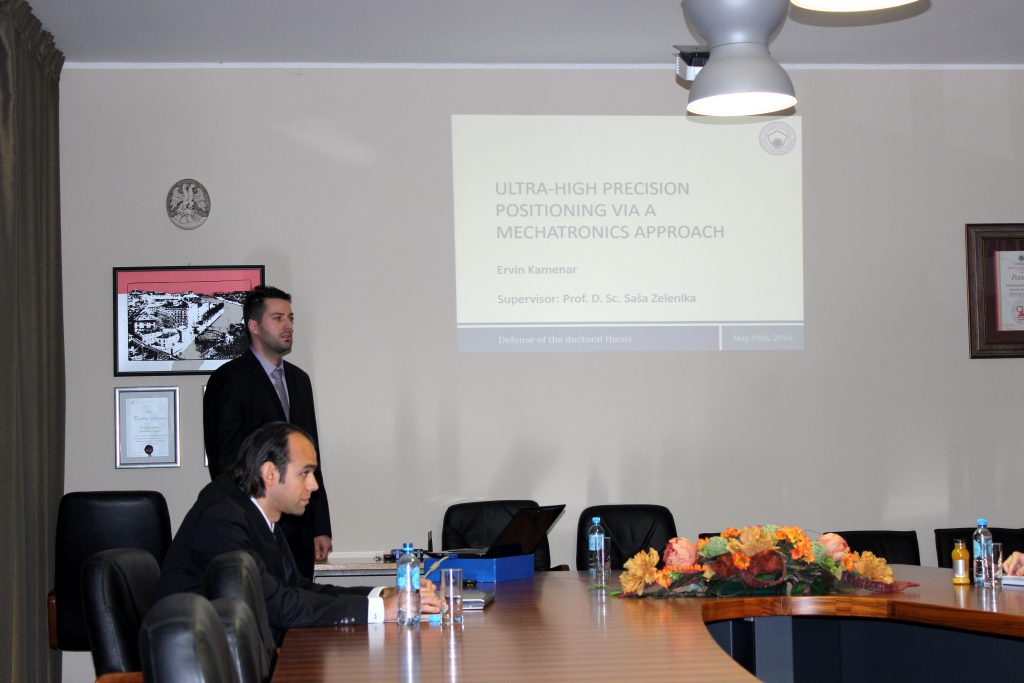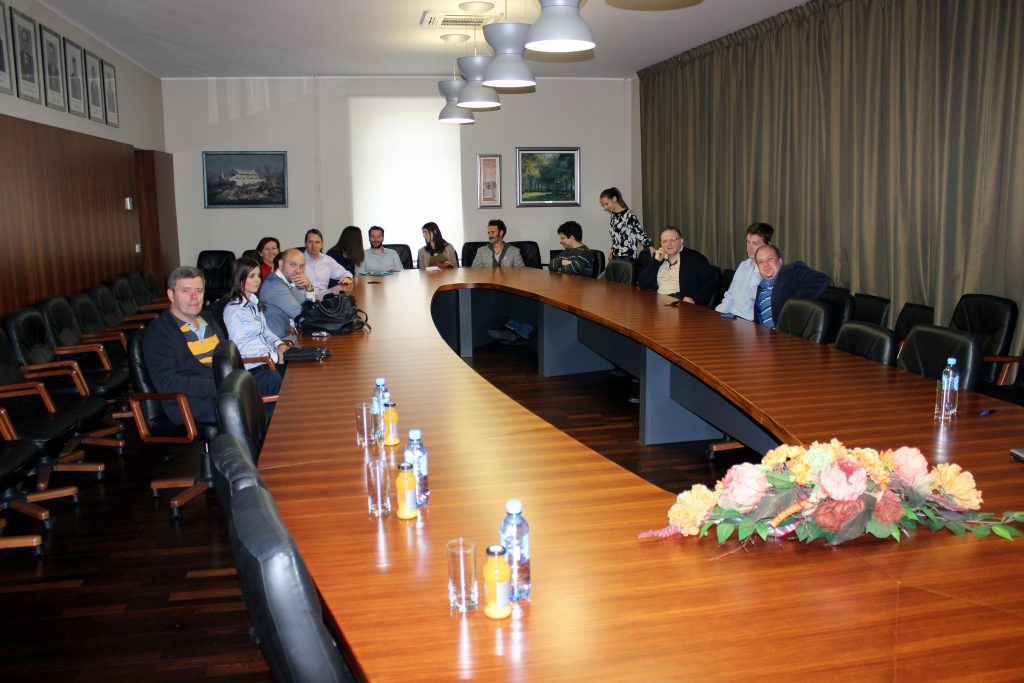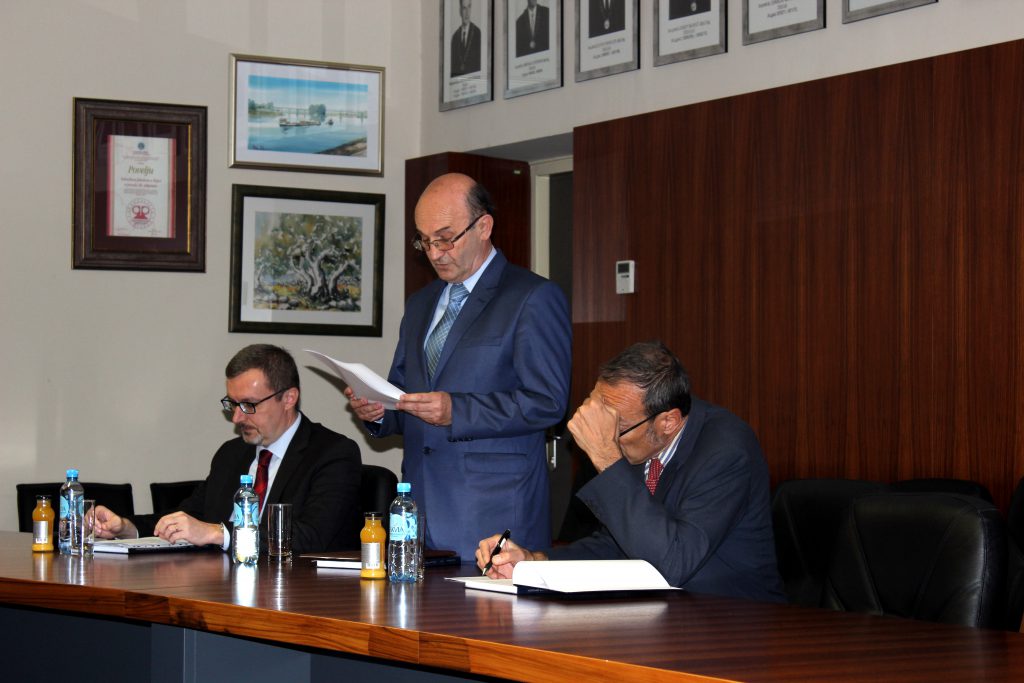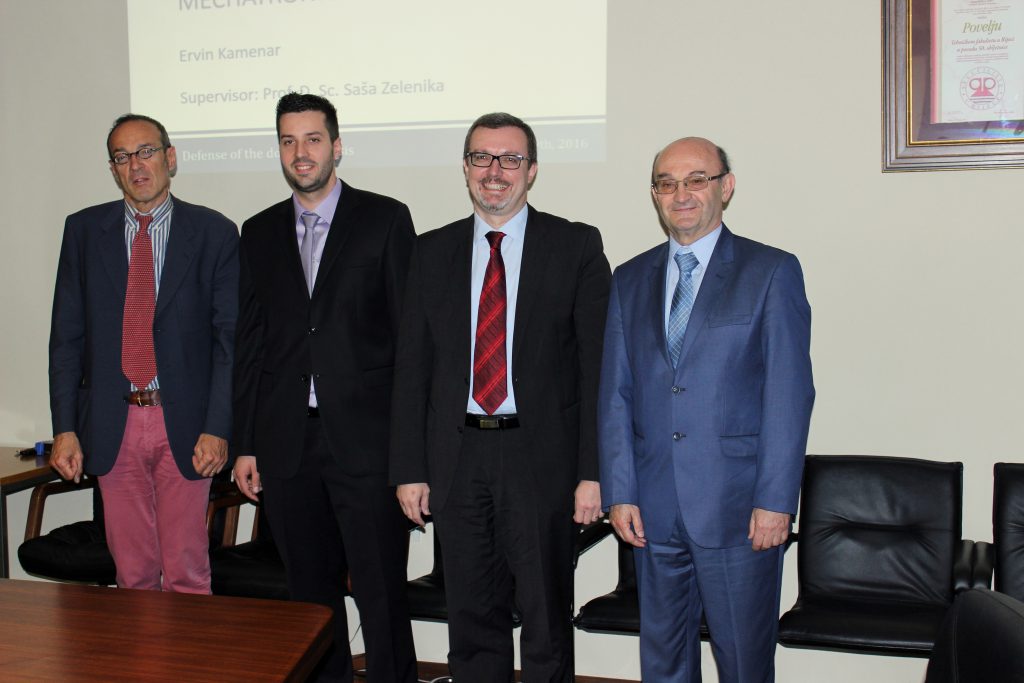Our member D. Sc. Ervin Kamenar defended his doctoral thesis entitled “Ultra-high precision positioning via a mechatronics approach” on May 19th, 2016.
Doctoral thesis supervisor vas Prof. D. Sc. Saša Zelenika.
Committee for the defense of the doctoral thesis:
- Prof. D. Sc. Nenad D. Pavlović, University of Niš, Serbia, Faculty of Mechanical Engineering (Mašinski fakultet Univerziteta u Nišu) – Committee Chair
- Prof. D. Sc. Saša Zelenika, University of Rijeka, Croatia, Faculty of Engineering (Sveučilište u Rijeci, Tehnički fakultet)
- Prof. D. Sc. Francesco De Bona, University of Udine, Italy, Department of Electrical, Management and Mechanical Engineering (Università di Udine, Dipartimento di Ingegneria Elettrica, Gestionale e Meccanica)
Thesis abstract:
Ultra-high precision mechatronics positioning systems are critical devices in current precision engineering and micro- and nano-systems’ technologies, as they allow repeatability and accuracy in the nanometric domain to be achieved. The doctoral thesis deals thoroughly with nonlinear stochastic frictional effects that limit the performances of ultra-high precision devices based on sliding and rolling elements. The state-of-the-art related to the frictional behavior in the pre-sliding and sliding motion regimes is considered and different friction models are validated. Due to its comprehensiveness and simplicity, the generalized Maxwell-slip (GMS) friction model is adopted to characterize frictional disturbances of a translational axis of an actual multi-degrees-of-freedom point-to-point mechatronics positioning system aimed at handling and positioning of microparts. The parameters of the GMS model are identified via innovative experimental set-ups, separately for the actuator-gearhead assembly and for the linear guideways, and included in the overall MATLAB/SIMULINK model of the used device. With the aim of compensating frictional effects, the modeled responses of the system are compared to experimental results when the system is controlled by means of a conventional proportional-integral-derivative (PID) controller, when the PID controller is complemented with an additional feed-forward model-based friction compensator and, finally, when the system is controlled via a self-tuning adaptive regulator. The adaptive regulator, implemented within the real-time field programmable gate array based control system, is proven to be the most efficient and is hence used in the final repetitive point-to-point positioning tests. Nanometric-range precision and accuracy (better than 250 nm), both in the case of short-range (micrometric) and long-range (millimeter) travels, are achieved. Different sensors, actuators and other design components, along with other control typologies, are experimentally validated in ultra-high precision positioning applications as well.



